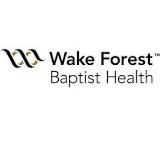CT Coronary Angiogram Versus Traditional Care in Emergency Department Assessment of Potential ACS
| Status: | Archived |
|---|---|
| Conditions: | Angina, Peripheral Vascular Disease, Cardiology |
| Therapuetic Areas: | Cardiology / Vascular Diseases |
| Healthy: | No |
| Age Range: | Any |
| Updated: | 7/1/2011 |
| Start Date: | July 2009 |
Randomized Controlled Study of a Rapid "Rule Out" Strategy Using CT Coronary Angiogram Versus Traditional Care for Low- to Intermediate-Risk ED Patients With Potential Acute Coronary Syndromes
This multi-center, randomized, controlled trial conducted in Emergency Departments (ED)
compares computed tomography (CT) coronary angiography with the traditional approach (usual
care) for low- to intermediate-risk chest pain patients. The primary objective is to
estimate the rate of major cardiac events (heart attack or cardiac death) within 30 days in
trial participants in Group B who were not found to have significant coronary artery disease
by CT coronary angiography. Additional evaluations will comprise health care utilization
assessments, including length of hospital stay and re-admissions, cost analysis, and 1-year
post-randomization major cardiac event rates.
In this study, participants with potential ACS will be randomized to traditional "rule out"
care (Group A) or to traditional care plus CT coronary angiography (Group B) in a ratio of
1:2 traditional versus traditional plus CT coronary angiography.
In Group A, all management and disposition decisions will be made by the healthcare
providers caring for the participant. Participants will be admitted to hospital, admitted to
cardiac diagnostic unit, or discharged to home. Diagnostic testing and treatment will be
decided by the team caring for the participant. Follow up will comprise telephone interviews
at 30 days and 1 year later.
In Group B, participants will receive initial cardiac troponin and creatinine blood tests.
Upon return of normal laboratory values, the participants will receive a CT coronary
angiography an estimated 90 minutes after the initial values assessment or as soon as the CT
scanner is available. Participants with negative test results will be discharged; follow up
will comprise telephone interviews at 30 days and 1 year later. Participants with positive
test results will be admitted to the hospital for further management dictated by the
admitting team.
We found this trial at
4
sites
3400 Spruce St
Philadelphia, Pennsylvania 19104
Philadelphia, Pennsylvania 19104
(215) 662-4000

Hospital of the University of Pennsylvania The Hospital of the University of Pennsylvania (HUP) is...
Click here to add this to my saved trials
500 University Dr
Hershey, Pennsylvania 17033
Hershey, Pennsylvania 17033
(717) 531-6955

Penn State Milton S. Hershey Medical Center Penn State Milton S. Hershey Medical Center, Penn...
Click here to add this to my saved trials
University of Pittsburgh Medical Center UPMC is one of the leading nonprofit health systems in...
Click here to add this to my saved trials
1 Medical Center Blvd
Winston-Salem, North Carolina 27103
Winston-Salem, North Carolina 27103
(336) 716-2011

Wake Forest University Baptist Medical Center Welcome to Wake Forest Baptist Medical Center, a fully...
Click here to add this to my saved trials
